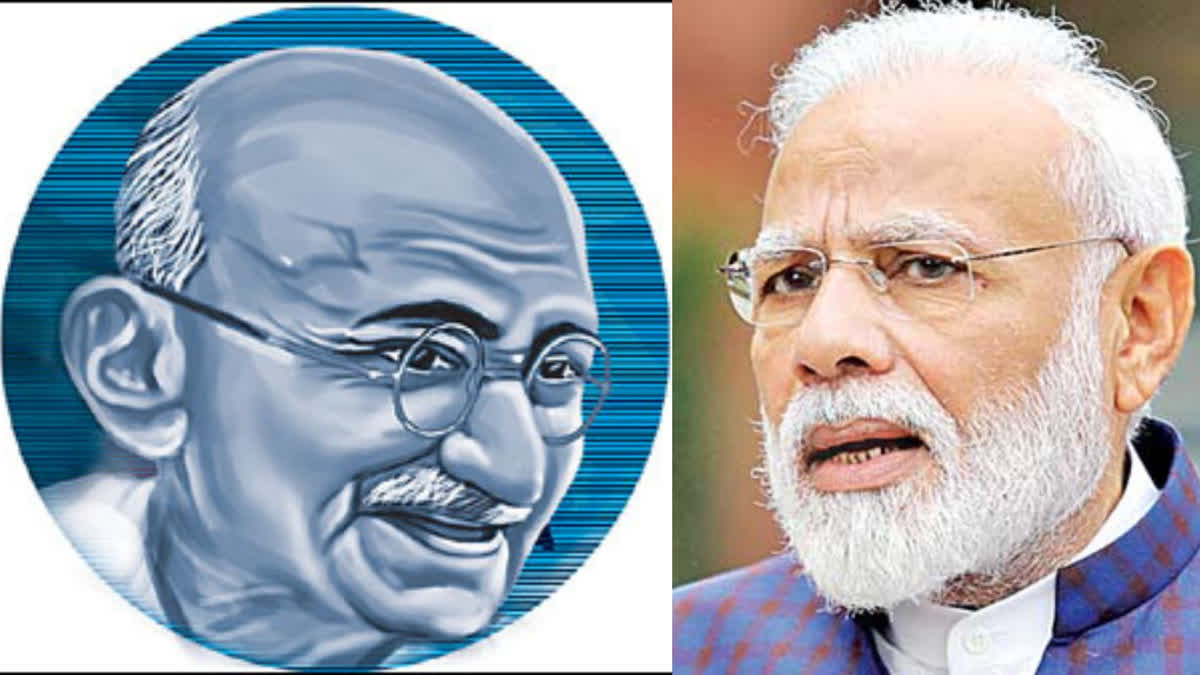New York : After Mahatma Gandhi, nobody else has as profound an understanding of Indian social psychology as Prime Minister Narendra Modi does, Press Secretary to the President of India and veteran journalist Ajay Singh has said.
Singh, who has authored the book 'The Architect of the New BJP: How Narendra Modi Transformed the Party', was speaking at the launch of his book here on Sunday in the US at an event titled 'Impact Modi' hosted in New Jersey by leading not-for-profit arts and cultural organisation Indo-American Arts Council (IAAC).
Prime Minister Modi has travelled extensively across India and his understanding of social psychology is very profound, which gives the Indian leader strength" in dealing with various issues, Singh said. He said that he had written about it extensively in the book and his thesis was, which was often quoted, that after Gandhi, there was nobody else who had so profound an understanding of Indian social psychology as Modi has.
Singh was responding to a question on Prime Minister Modi's tremendous popularity and how decisions like demonetisation did not dent his standing. A veteran journalist with over 35 years of experience, Singh was appointed as Press Secretary to then-President Ram Nath Kovind in September 2019.
His book, which chronicles how the Bharatiya Janata Party has transformed over the decades and reveals the lesser-known contributions of Prime Minister Narendra Modi to this end, like his experiments with traditional methods of party-building, was published in India in July 2022. During the launch event attended by India's Consul General in New York Randhir Jaiswal as well as by prominent members of the Indian-American community, Singh noted that as mentioned by him in the book, the BJP "has built an organisation which is so robust and so strong that it will outlast individuals.
Singh noted that in the 1950s, the Congress party had that kind of robust organisation and it lasted till 2014. Highlighting BJP's history, from its predecessor the Bharatiya Jana Sangh which was formed in 1951 to the national elections in 2014 when Modi became Prime Minister after a landslide victory, Singh said that as he watched the Modi wave unfold, he pondered over developments taking place at the ground level that were leading to this change in the national political landscape.
Since these questions have been before us for close to a decade, many answers have been proposed by now. Some believe it is Modi's charisma and oratorical skills, others credit his undiluted commitment to the political ideology of 'Nation First' while some say his singular focus on development and good governance has done the trick.
True, all these factors have contributed to cementing the BJP's position in India's political landscape, Singh said but added that when all put together, these reasons fail to explain the sheer scale of BJP's victories. Singh noted that BJP leader former Prime Minister Atal Bihari Vajpayee too was extremely charismatic and an outstanding orator. The Vajpayee government also was known for its focus on good governance and developmental work though it lacked numbers and had to depend on allies to come to power and hence some of the hot-button issues were kept in abeyance.
